- Home
- slideshows
- miscellaneous
- Austria responded fast and decisively to its coronavirus outbreak, and is now starting to open up again. Here is exactly what happened.
Austria responded fast and decisively to its coronavirus outbreak, and is now starting to open up again. Here is exactly what happened.
Austria confirmed its first two coronavirus cases on February 25, after a man and woman returned from vacation in Lombardy, Italy.

The first large-scale transmission in Austria seems to have started in the ski resort of Ischgl in early March. Cases linked to the town later led to confirmed infections in six other countries.

Source: Business Insider
On March 10, Austrian authorities closed schools and universities, banned public gatherings, and restricted travel to the neighboring countries. It was among the first in Europe to act in this way.
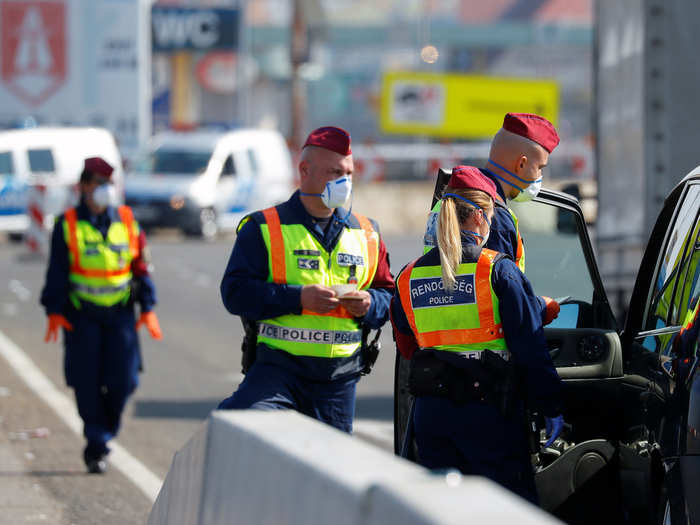
Authorities not only shut down Ischgl on March 13, nine days after cases had started to be recorded there but also put the entire province of Tyrol in quarantine.
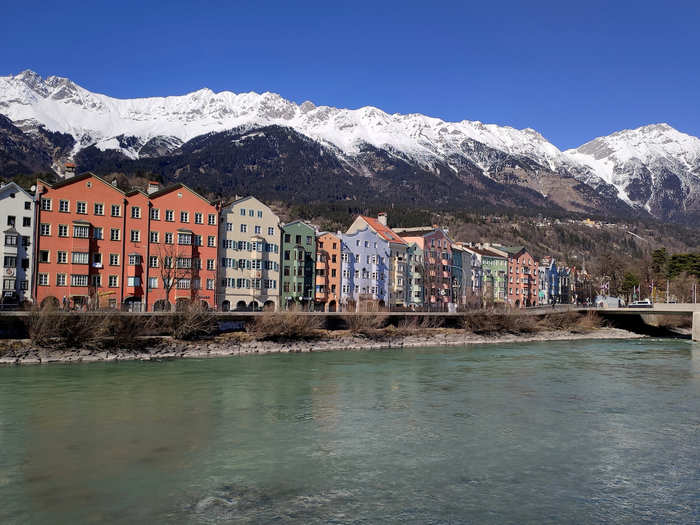
The government of the Tyrol region is now facing a lawsuit, which has been backed by 2,500 tourists, blaming them for not acting sooner.
Source: Business Insider
This was followed by an early nationwide lockdown on March 16. At this point, countries, including Germany and the UK, had not yet introduced such measures.
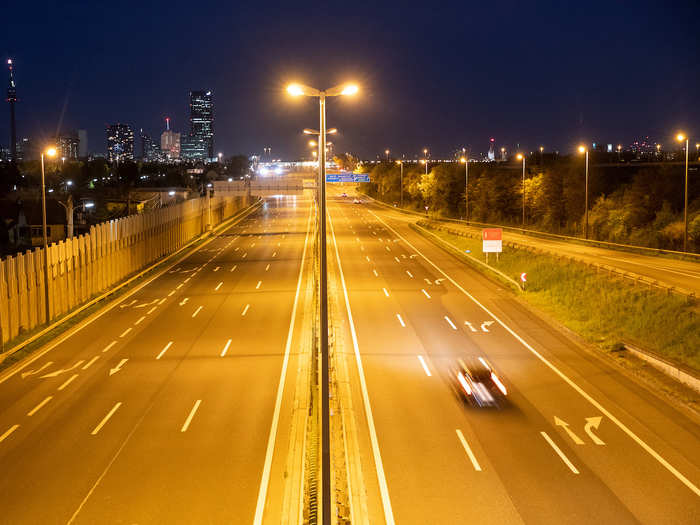
France, which has since been ordered to remain at home until at least May 11, went on lockdown on the same day.
Many argue that the country's success in the crisis can be credited to its early lockdown as it became one of the first to introduce such measures in Europe, according to The Independent.
People were asked to work from home and streets and major highways emptied out.
Austrians were only allowed to leave their homes to go to supermarkets and pharmacies and to exercise outside, according to local news agency ORF.
Unlike some other countries, Austrians were still allowed to go outdoors for exercise as many times as they wanted, but only if they respected social distancing rules.
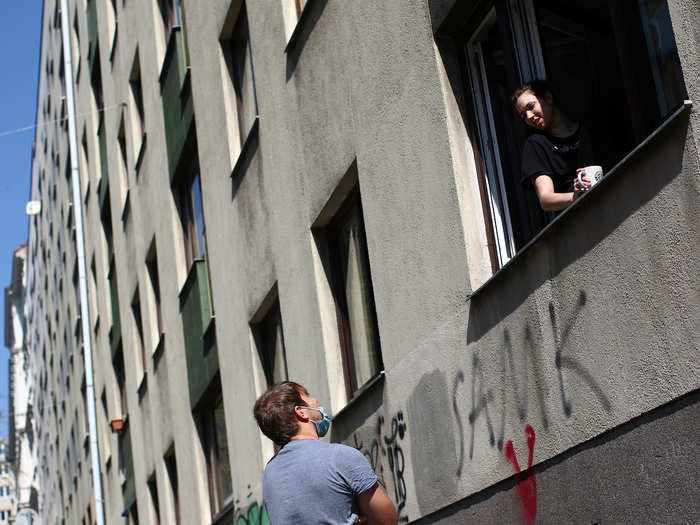
Police warned that if people did not stick to the rules, they would face fines of up to $3,859 (3,600 euros), Reuters reported.
More than 17,000 tickets were handed out during the lockdown, according to The Independent.
If restaurants tried to continue operating secretly, they would be fined up to $32,605 (30,000 euros).
One day after the country went on lockdown, a makeshift emergency hospital was completed in Vienna to treat incoming coronavirus patients.
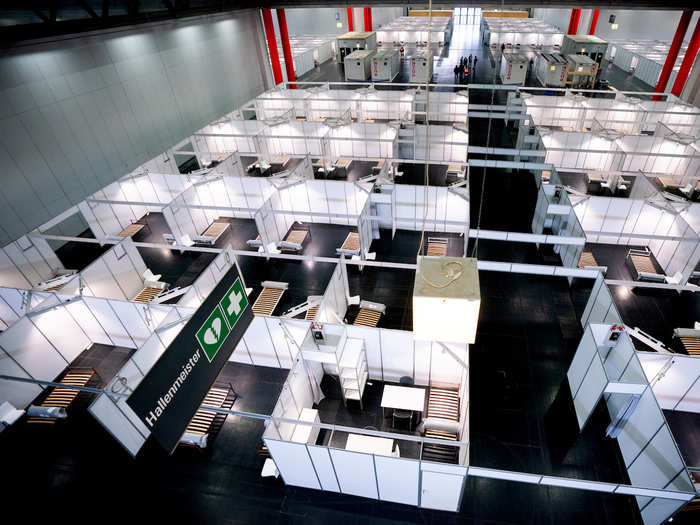
By mid-March, the number of infections in the country was doubling every three days. It experienced its peak on March 26, recording 966 new cases in a day.
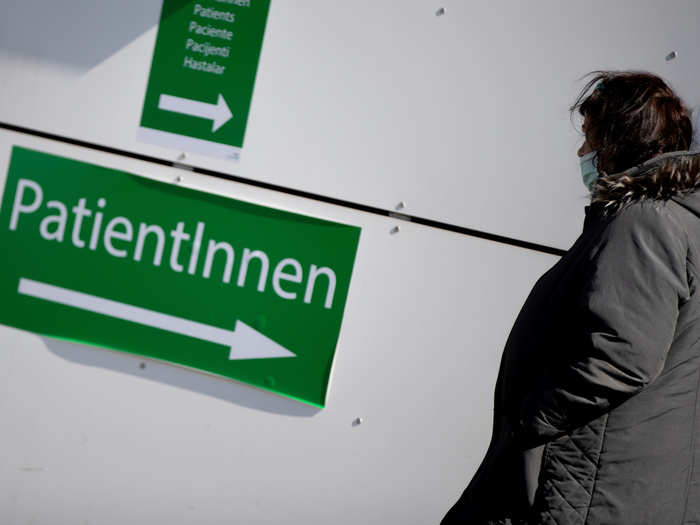
Source: The Independent
One tactic implemented by the government, which helped flatten the curve was a hotline that dispatched medical workers to people's homes to test them if they were showing symptoms of COVID-19.
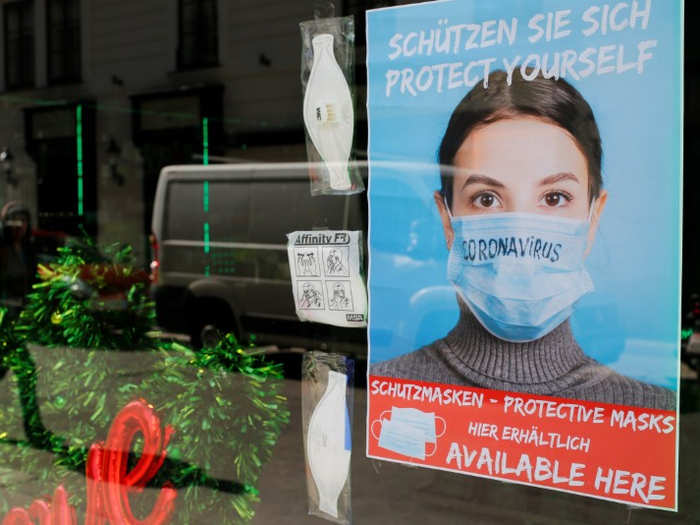
Anyone who was experiencing symptoms were told to call the hotline, where a medical expert would determine whether the person would need to be tested or not. If this were the case, a mobile team of healthcare professionals arrived to take a test in people's homes, the Independent reported.
This service was widely advertised and made available from the start of the crisis.
Clemens Martin Auer, a top health advisor to the government, told The Independent: "The key was to keep them out of the hospitals, where a lot of transmissions could take place, and where it could spread quickly, and that really made a difference for us."
But there were still issues with the system, with complaints about long waiting times to get through on the phone and to get results sent back.
Source: The Independent
Meanwhile, the government also announced a 38-billion-euro aid package on March 18.
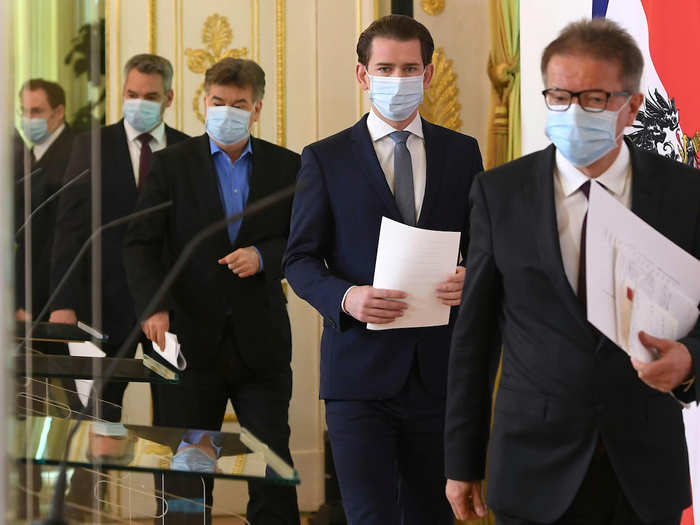
But despite the efforts to hold up the economy, Austria's employment agency announced that 504,000 people were officially registered as unemployed at the beginning of April, according to Deutsche Welle.
In the first two weeks of the country's lockdown, that number increased by 200,000 alone.
Source: Reuters
As cases started to decrease, the Austrian government introduced a rule making it compulsory to wear basic masks in supermarkets and pharmacies on April 6.
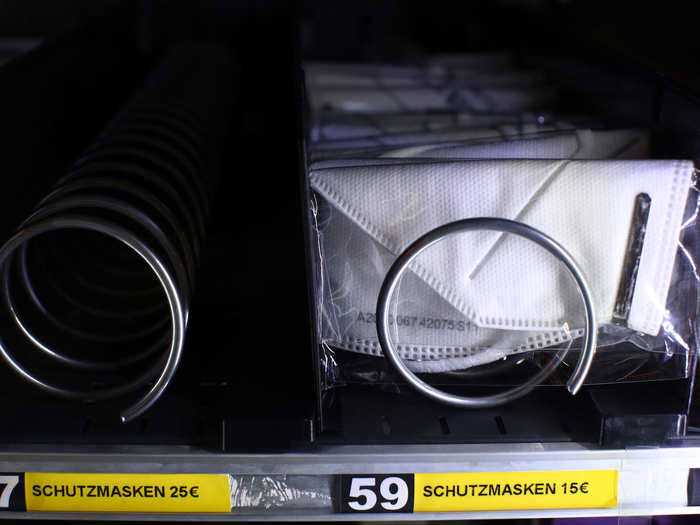
When he announced the measures, Chancellor Sebastian Kurz said that the masks could be basic nose and mouth coverings — including scarves — allowing proper medical masks to be reserved for hospital staff.
Source: BBC
After a month of lockdown, Austria became the first European country to confirm dates of when it would begin lifting lockdown restrictions.
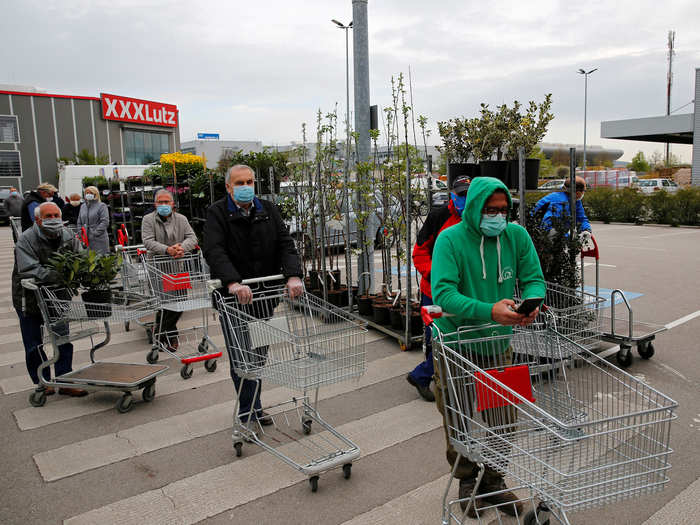
The plans were set out in a press conference on April 6, the Financial Times reported.
Economy Minister Margarete Schramböck was quoted in the BBC as saying: "Experience in countries that have handled it well has taught us that we have to move gradually."
The steps began on the week of April 13. As of Tuesday April 14, non-essential shops were allowed to open their doors again.
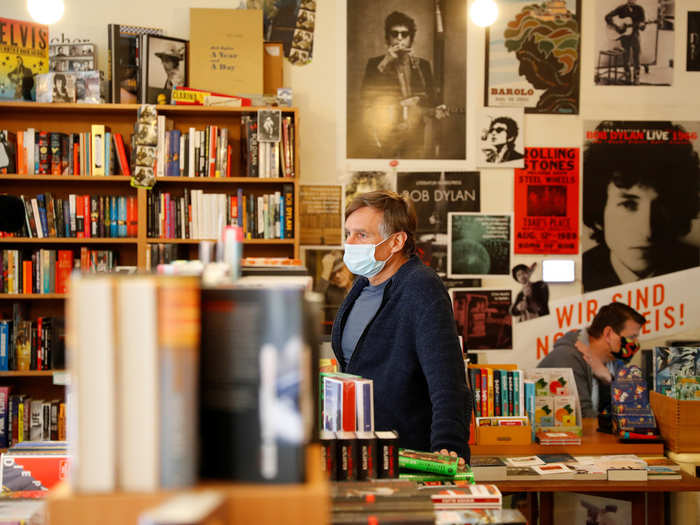
This rule only applies to shops that are smaller than 4,300 square feet (440 square meters).
Source: Deutsche Welle
Hardware stores and garden centers opened too.
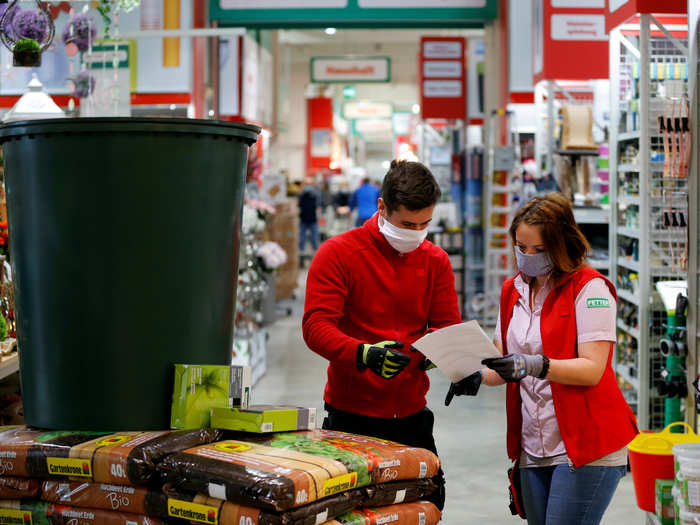
On May 1, hairdressers and shopping malls will follow suit. But restaurants and hotels will need to wait until mid-May before they're allowed to open again.
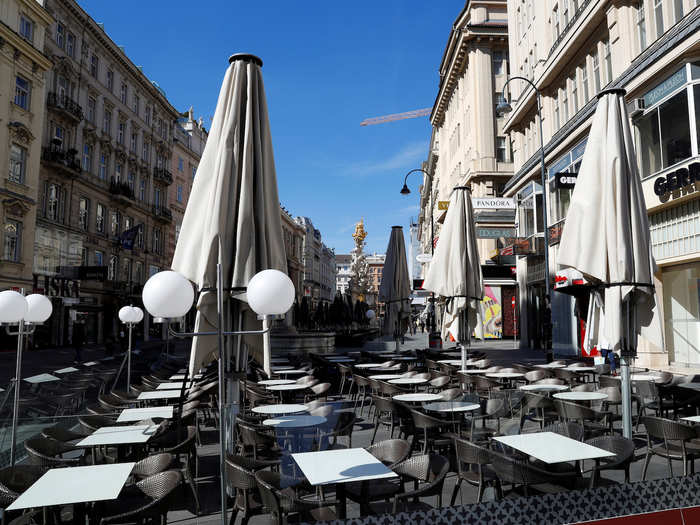
Sports that are compatible with social distancing like tennis and golf can resume from May 1, and professional athletes can start working in specified training centers as well, Reuters reported.
But no pubic gatherings will be allowed until at least late June, Deutsche Welle reported.
The previous rule on wearing face masks in supermarkets has been extended to non-essential shops and public transport.
Source: Deutsche Welle
But as life slowly starts returning to normal, many people are still afraid of catching or spreading the illness.
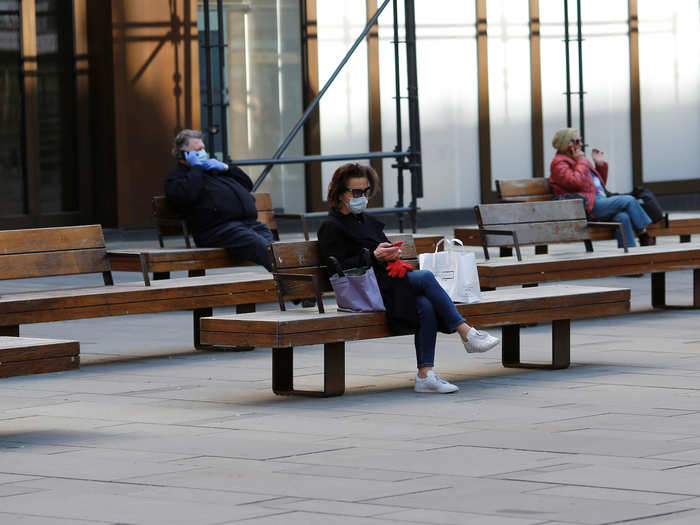
Thomas Kaschowitz, the owner of a men's fashion store in the center of Vienna, told Deutsche Welle: "Of course I'm happy I'm allowed to reopen. But I don't think the mood in the population is that everything is fine, because the virus is still there."
"There will be a more positive atmosphere, but the situation itself needs to improve," he added.
Austria has also urged its people to use an app developed by the Red Cross that helps to trace anyone who came into contact with infected people.
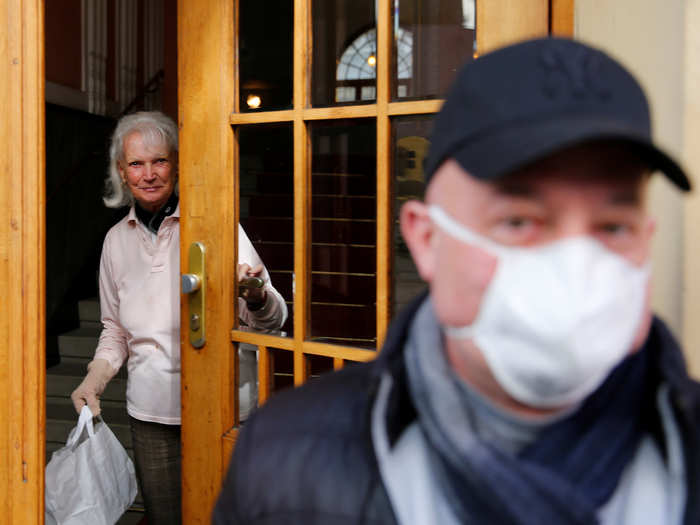
The app, called Stop Corona, has already been downloaded by thousands of people, according to Reuters.
Source: Reuters
Last week a new government-commissioned study suggested that less than 1% of the country's population is "acutely infected" with coronavirus by the beginning of April.
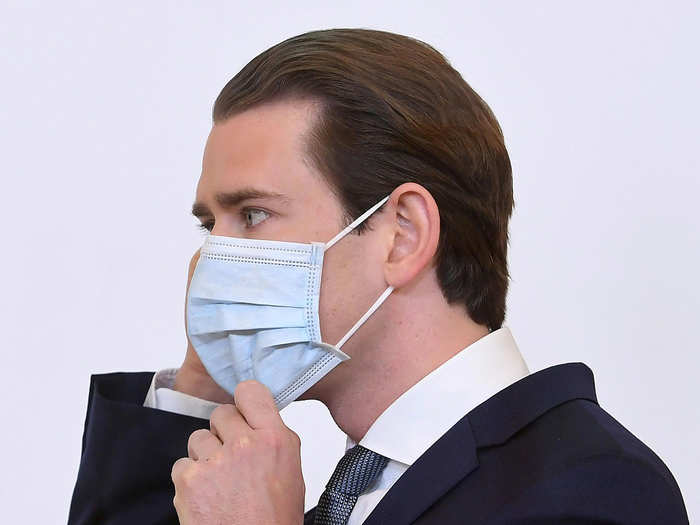
The research was conducted by polling company Sora and tested on a sample of more than 1,500 people, The Guardian reported.
But researchers said that the study did not account for any asymptomatic cases or people who were immune.
Source: The Guardian
Other governments will now be looking to Austria to see if its approach can successfully reactivate its economy while also keeping the population healthy.
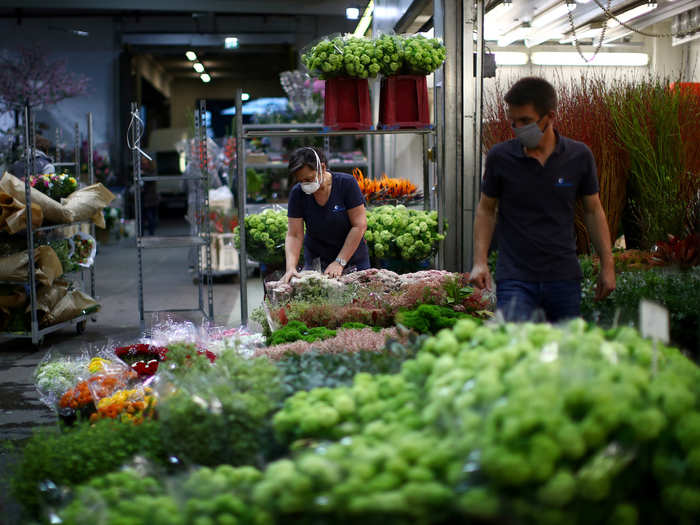
Popular Right Now
Advertisement